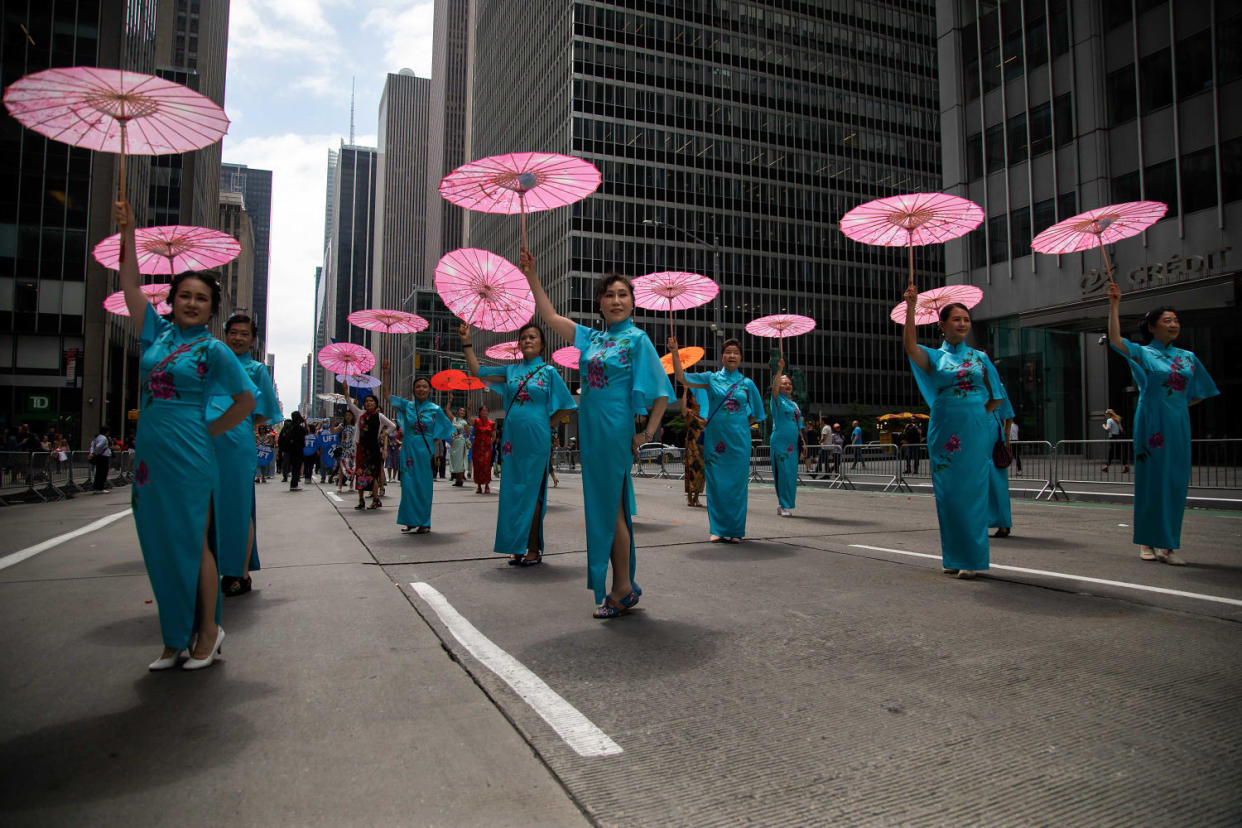Everything you need to know about AANHPI Heritage Month
Each May, Asian American and Pacific Islander (AAPI) Heritage Month celebrates the culture and contributions of Asian Americans, Native Hawaiians and Pacific Islander Americans.
From parades to performances, AAPI Heritage Month is full of opportunities to learn more about the AAPI community.
In a speech on April 30, President Joe Biden reflected on the importance of AAPI Heritage Month.
“From Native Hawaiians and Pacific Islanders whose ancestors have called their lands home for hundreds of years, to Asian immigrants who have newly arrived and those whose families have been here for generations — AA and NHPI heritage has long been a part of the history of our great country and a defining force in the soul of our Nation,” he said.
“As artists and journalists, doctors and engineers, business and community leaders, and so much more, AA and NHPI peoples have shaped the very fabric of our Nation and opened up new possibilities for all of us.”
The month-long celebration is steeped in decades of history. Though the AAPI community has been honored in May since the 1970s, AAPI Heritage Month wasn't recognized as an annual federal observance until 1992.
Ahead of the May celebration, take a moment to learn more about AAPI Heritage Month, the holiday's history, and how you can participate in the festivities.
Why do we celebrate AAPI Heritage Month in May?
AAPI heritage was originally celebrated during the first week of May until Congress expanded the observance to the full month in 1990.
May was chosen as the month to commemorate AAPI history because the first Japanese immigrants came to America on May 7, 1843.
Additionally, the transcontinental railroad, which was built with significant involvement from Chinese immigrant laborers, was completed with a single golden spike on May 10, 1869.
What is the history of AAPI Heritage Month?
Jeanie Jew, one of the founders of the Organization of Chinese American Women (OCAW), originated the idea of AAPI Heritage Month.
Jew worked as a staffer on Capitol Hill in the 1970s, where she worked to increase Asian-American representation. She came up with the idea to designate the month of May as a time to celebrate AAPI history and contributions.
Beyond the other significant dates in AAPI history that took place in May, Jew had a personal connection to the month. Her grandfather, a Chinese immigrant, took part in building the transcontinental railroad. Tragically, he was later killed during a period of anti-Asian violence in Oregon.
Jew pitched the idea to New York Rep. Frank Horton, who co-sponsored a bill with California Rep. Norman Yoshio to dedicate a week to AAPI heritage.
Due to Jew's efforts to generate support, 231 congressional members signed on to co-sponsor the bill. On October 5, 1978, President Jimmy Carter signed the resolution to dedicate the first week of May to AAPI heritage.
In 1990, President George H.W Bush signed a declaration expanding the celebration to the entire month of May, and in 1992, AAPI month was officially made an annual observance.
Horton shared a letter from Jew thanking him for his advocacy.
“Since its first observance, the celebration in May has become the single most significant event for Asian and Pacific Islanders and all Americans to learn more about our concerns, contributions, achievements and history in the U.S.,” Jew wrote.
How to celebrate AAPI Heritage Month
Each May brings a variety of AAPI Heritage Month events across the country.
Many cities, including Seattle, Raleigh, Denver, and Dallas, will host festivals that have everything from food trucks to dragon boat races.
The third annual AAPI Cultural and Heritage Parade will take place in NYC on May 19, and Pell Open Streets Chinese Food Festival in Chinatown will feature a variety of delicious dishes on May 4 and 5.

May is also the perfect time for book lovers to browse titles by AAPI authors.
Multigenerational saga “Pachinko” by Korean-American author Min Jin Lee has quickly become a modern classic, and the “Crazy Rich Asians” book series by Singaporean-American author Kevin Kwan is perfect for your summer beach reads.
Kids will love Taiwanese-American author Grace Lin's colorful children's books like “Dim Sum for Everyone!” and middle-grade novels like “The Year of the Dog” and “Where the Mountain Meets the Moon.”
You can also learn more about AAPI artists by checking out your local museum's exhibit schedule or taking a virtual tour.
This article was originally published on TODAY.com
